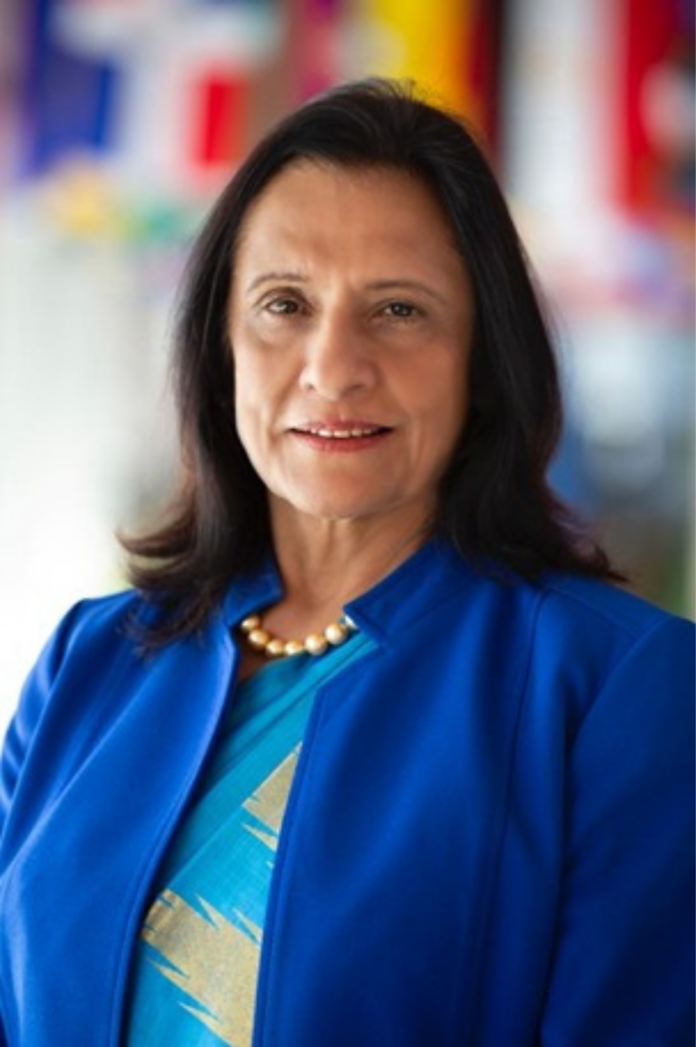Kathmandu, 9 September 2021 – The World Health Organization and Member countries of South-East Asia Region discussed further strengthening health emergency security systems to effectively respond to the ongoing COVID-19 pandemic and prepare for future health emergencies.
“The COVID-19 pandemic has posed unprecedented challenges. No country globally was prepared enough to deal with an emergency of this scale. It is critical that lessons from the ongoing pandemic are used to inform our efforts to strengthen health security systems,” said Dr Poonam Khetrapal Singh, Regional Director WHO South-East Asia, at the Seventy-Fourth Regional Committee meeting.
Strengthening emergency risk management has been a flagship priority programme of the WHO South-East Asia Region since 2014, which has consistently been scaling up response capacities since the 2004 Indian Ocean tsunami, a mega disaster that hit six countries of the Region.
 Online Courses with Certification
Online Courses with Certification
Months before the COVID-19 outbreak, Member countries of the Region had adopted the ‘Delhi Declaration’ to strengthen emergency preparedness capacities by scaling up risk assessment, increasing investments, and enhancing implementation of multi-sectoral plans. Over the years, Member countries made considerable progress in implementing the International Health Regulations (IHR) (2005) for health emergency preparedness and response.

Important Announcement – EasyShiksha has now started Online Internship Program “Ab India Sikhega Ghar Se”

Q. Are EasyShiksha's internships truly free?
Yes, all internships offered by EasyShiksha are completely free of charge.
Q. How can I apply for an internship with EasyShiksha?
You can apply by visiting our website, browsing available internships, and following the application instructions provided.
Q. What types of internships are available through EasyShiksha?
EasyShiksha offers a wide range of internships across technology, business, marketing, healthcare, and more. Opportunities are continuously updated.
Q. Will I receive a certificate upon completing an internship?
Yes, upon successful completion, you will receive a certificate recognizing your participation and achievements.
Q. Are EasyShiksha's internship certificates recognized by universities and employers?
Yes, the certificates are recognized by universities, colleges, and employers worldwide.
Q. Is the download of certificates free or paid?
Access to internships and courses is free, but there is a small fee to download certificates, covering administrative costs.
Q. When can I start the course?
You can choose any course and start immediately without delay.
Q. What are the course and session timings?
These are fully online courses. You can learn at any time and pace. We recommend following a routine, but it depends on your schedule.
Q. What will happen when my course is over?
After completion, you will have lifetime access to the course for future reference.
Q. Can I download the notes and study material?
Yes, you can access and download course materials and have lifetime access for future reference.
Q. What software/tools would be needed for the course?
All necessary software/tools will be shared during the training as needed.
Q. I’m unable to make a payment. What should I do?
Try using a different card or account. If the problem persists, email us at info@easyshiksha.com.
Q. Do I get the certificate in hard copy?
No, only a soft copy is provided, which can be downloaded and printed if required.
Q. The payment got deducted but shows “failed”. What to do?
Technical errors may cause this. The deducted amount will be returned to your account in 7-10 working days.
Q. Payment was successful but dashboard shows ‘Buy Now’?
Sometimes payment reflection is delayed. If it takes longer than 30 minutes, email info@easyshiksha.com with the payment screenshot.
Q. What is the refund policy?
If you face technical issues, you can request a refund. No refunds are issued once the certificate has been generated.
Q. Can I enroll in a single course?
Yes, select the course of interest, fill in the details, make payment, and start learning. You will also earn a certificate.
Q. My questions are not listed above. I need further help.
Contact us at info@easyshiksha.com for further assistance.
“Countries fully utilized the existing core capacities to control transmission and save lives while trying to match the unprecedented challenges of the pandemic,” the Regional Director said, adding that “critical gaps in our health security systems and arrangements need to be addressed.”
The Member countries discussed reviewing and reforming various aspects of preparedness, including but not limited to emergency governance structures and workforce, surveillance and alert mechanisms, laboratory, supply management systems, health-care system preparedness and risk communication and community engagement.
The ongoing response has demonstrated that the highest level of political leadership and involvement and functional multisectoral arrangements are crucial in preparing for and responding to severe health emergencies. Such arrangements enable timely, decisive and largescale actions, such as whole-of-government, whole-of-society responses and mobilization of financial resources. These arrangements should be continuously reviewed and strengthened.
Another important lesson from the pandemic is the extraordinary scale of surge capacities across the gamut of response from surveillance and contact tracing to clinical management, laboratory testing, vaccination, and community engagement, that the countries need to plan for.
The pandemic has reiterated the importance of effective alert mechanism which ensures early notification and information sharing for global risk assessments and coordinated, timely and decisive responses.
Another lesson learnt from the ongoing pandemic is the effectiveness of non-pharmaceutical Public Health and Social Measures (PHSM). These measures can stop transmission but also have significant socioeconomic consequences. Hence, epidemiological analysis and response capacity assessment should guide timely adjustment of PHSMs with stringent measures being limited to where and when most needed.
Engaging with people for them to take informed decisions to adopt preventive behavior, support surveillance, contact-tracing, quarantine, and sharing correct information, is critical.
Dr Khetrapal Singh said Member countries must build, strengthen and maintain core capacities required under IHR (2005) through developing and implementing the national action plans for health security, linked with health systems strengthening efforts.
“We must continue to work together to identify priority actions to further strengthen health emergency preparedness and response capacities to respond to the ongoing pandemic and prepare better for future pandemics, emergencies and disasters,” the Regional Director said.
ALSO READ: irm-partners-with-bca-to-strengthen-enterprise-risk-mgt
Get Course: Quality-Management-System-(QMS)

































































